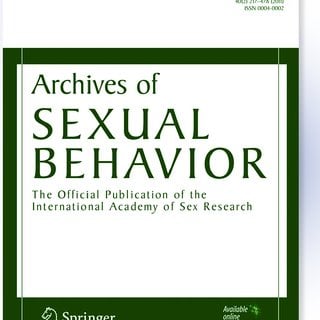Archives of Sexual Behavior
Abstract
Sex addiction is characterized by a persistent pattern of failure to control intense and repetitive sexual urges, thus causing marked distress or impairment in important areas of functioning. Sex addiction may co-occur with other psychiatric conditions, including suicide risk, but few studies have explored such co-occurrences in depth, and these studies were based on small samples. A total of 136 patients referred to the Nantes University Hospital for sex addiction between 2013 and 2022 were included. Sex addiction was diagnosed using Goodman’s scale for the diagnosis of behavioral addictions. Suicide risk was assessed using the suicidality module of the MINI 5.0. A multivariate logistic regression model was used to identify factors associated with the presence of suicide risk. Suicide risk was detected among 46% of patients. Four variables were found to be associated with suicide risk: a higher proportion of relatives aware of the sex addiction, a higher frequency of anxiety disorders, a higher frequency of mood disorders and a lower level of self-directedness. The frequency of suicide risk in patients with behavioral addictions is greater than that reported in previous studies. Mood and anxiety disorders are two factors that are often found to be associated with suicide risk among individuals with sex addiction, while awareness of sex addiction by relatives and a low level of self-directedness are two factors that have not been previously identified. In fact, it may be relevant to improve the self-directedness dimension through psychotherapies and to consider the inclusion of the patient’s partner in the treatment.
